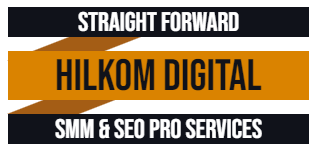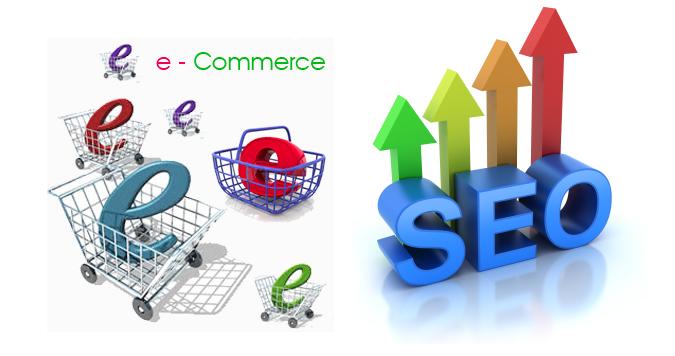No products in the cart.
SEO
Unlocking the Secrets of E-commerce SEO: Boost Your Online Store’s Visibility and Sales!
Are you an online store owner looking to unlock the secrets of E-commerce SEO? Well, you’ve come to the right place! In today’s digital age. Having a beautifully designed and user-friendly online store is just not enough. If you want your business to succeed in the competitive world of E-commerce. It’s crucial to optimize your website for search engines. And that’s where E-commerce SEO comes into play.
But what exactly is E-commerce SEO? How can you optimize your online store for maximum visibility and increased sales? Let’s delve into all things related to E-commerce SEO and provide you with practical tips on how to get started. So buckle up and get ready to skyrocket your online store’s visibility and boost those sales like never before!
What is E-commerce SEO?
What is E-commerce SEO? It’s a question that many online store owners ask. In simple terms, E-commerce SEO refers to the practice of optimizing your online store’s website and content to rank higher in search engine results pages (SERPs). When potential customers search for products or services related to your business, you want them to find your website at the top of the list.
Optimizing an E-commerce store involves various strategies and techniques, such as keyword research, on-page optimization, technical SEO, link building, and more. Keyword research helps you identify the words and phrases that potential customers use when searching for products like yours. By strategically incorporating these keywords into your website’s content, meta tags, product descriptions, and URLs. You increase your chances of appearing in relevant searches.
On-page optimization focuses on improving elements directly on your webpages. This includes optimizing title tags, headings, image alt text, and URL structures. All with the goal of making it easier for search engines to understand what each page is about. Technical SEO involves ensuring that behind-the-scenes elements like site speed performance and mobile responsiveness are optimized.
Link building plays a crucial role in E-commerce SEO as well. Building high-quality backlinks from reputable websites increases both domain authority and visibility in search results.
Additionally, user experience also plays a major role in E-commerce SEO. A fast-loading website with easy navigation ensures that visitors stay longer on your site, which reduces bounce rates, a positive signal for search engines.
In essence, E-commerce SEO encompasses several strategies aimed at improving organic traffic to an online store by increasing its visibility within SERPs. The better optimized your online store is for search engines, the higher chance you have of attracting qualified leads who are ready to make purchases.
How to Optimize Your E-commerce Store for SEO
When it comes to optimizing your e-commerce store for SEO, there are several key strategies that can help improve your online visibility and drive more traffic to your site. One of the first steps is conducting keyword research to identify relevant search terms that customers are using to find products similar to yours. Once you have a list of keywords, incorporate them strategically throughout your website, including in page titles, meta descriptions, headers, and product descriptions.
Another important aspect of e-commerce SEO is ensuring that your website’s structure is user-friendly and easy for search engines to navigate. This includes organizing your products into logical categories and subcategories. Creating clean URLs with descriptive keywords, and implementing breadcrumbs for easy navigation.
In addition to optimizing on-page elements, it is crucial to build high-quality backlinks from reputable websites in order to boost your organic rankings. Reach out to industry influencers or bloggers who may be interested in reviewing or featuring your products. You can also leverage social media platforms by sharing engaging content related to your niche and encouraging users to share it with their networks.
Regularly monitoring and analyzing data from tools like Google Analytics can provide valuable insights into how well your optimization efforts are working. By tracking metrics such as organic traffic, bounce rate, and conversions. You can fine-tune your strategy and make data-driven decisions moving forward.
The Benefits of Optimizing Your E-commerce Store for SEO
- Increased Visibility: When you optimize your e-commerce store for SEO, you are essentially making it easier for search engines to find and understand your website. By using relevant keywords, optimizing meta tags, and creating quality content, you can improve your website’s visibility in organic search results.
- Higher Rankings: As search engines recognize the relevance and authority of your e-commerce store through proper optimization techniques. They will reward you with higher rankings. This means that when potential customers search for products or services related to what you offer, they are more likely to see your website at the top of their search results.
- Targeted Traffic: With effective SEO strategies in place, you can attract highly targeted traffic to your e-commerce store. By optimizing your site for specific keywords and long-tail phrases that align with the needs and preferences of your target audience. You can ensure that those who visit your site are more likely to convert into paying customers.
- Improved User Experience: A well-optimized e-commerce store not only benefits search engines but also enhances the overall user experience. By organizing product categories logically, improving page load speed, ensuring mobile responsiveness, and providing clear navigation options, visitors will have a seamless browsing experience on your site.
- Increased Sales Potential: The goal of every e-commerce business is to drive sales. By optimizing your online store for SEO purposes. Such as improving product descriptions and implementing persuasive call-to-actions (CTAs), you create a better chance of converting visitors into customers.
How to Get Started with E-commerce SEO
1. Conduct keyword research: Begin by identifying relevant keywords related to your products or services. Utilize tools such as Google Keyword Planner or SEMrush to discover popular search terms that are relevant to your target audience.
2. Optimize on-page elements: Make sure you optimize key on-page elements, such as meta titles, meta descriptions, headings, and product descriptions, with your target keywords. This will help search engines understand what your pages are about and improve their visibility in search results.
3. Improve site speed: Page loading speed is crucial for both user experience and SEO. Ensure that your website loads quickly by optimizing images, minifying code. Using caching techniques, and choosing a reliable hosting provider.
4. Build high-quality backlinks: Backlinks from reputable websites can significantly boost the visibility of your online store in search engine rankings. Focus on building natural links through guest blogging, influencer partnerships. Or creating valuable content that others would want to link back to.
5. Implement structured data markup: Adding structured data markup, such as Schema.org. Helps search engines better understand the content of your web pages. It can enhance the appearance of rich snippets in search results and increase click-through rates.
6. Utilize social media platforms: Social media signals play an increasingly important role in SEO rankings for e-commerce stores. Create engaging content on platforms such as Facebook, Instagram, and Twitter. To attract more visitors and encourage them to share links back to your website.

